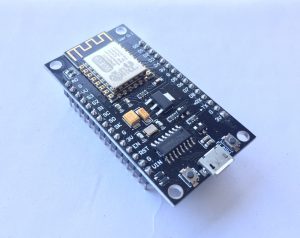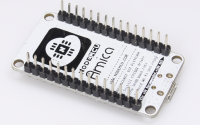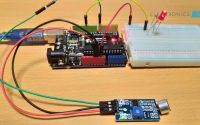NodeMCU Projects
NodeMCU is an open-source development board and firmware based on the ESP8266 Wi-Fi module. It allows for easy integration of Wi-Fi connectivity into projects and is often used for Internet of Things (IoT) applications.
The NodeMCU development board is built around the ESP8266 chip, which includes an 32-bit microcontroller and a built-in Wi-Fi transceiver. The board is typically programmed using the Lua scripting language, although it can also be programmed using the Arduino IDE.
The NodeMCU development board has a variety of features that make it well-suited for IoT projects. It has a built-in USB-Serial converter, which allows for easy programming and communication with the board. It also has a variety of digital and analog input/output (I/O) pins, which can be used to interface with sensors, actuators, and other devices.
One of the key advantages of the NodeMCU development board is its small size and low power consumption, making it well-suited for portable and battery-powered projects. It also has built-in support for over-the-air (OTA) firmware updates, which allows for easy and efficient updates to the board’s firmware.
In summary, NodeMCU is an open-source development board and firmware based on the ESP8266 Wi-Fi module, it allows for easy integration of Wi-Fi connectivity into projects and is often used for Internet of Things (IoT) applications, it is a popular choice for projects such as home automation, sensor monitoring, and control systems.
There are many potential projects that can be built using the NodeMCU development board. Here are a few examples:
- Home Automation: Use the NodeMCU to control lights, appliances, and other devices in your home using a web interface or a mobile app.
- Temperature and Humidity Sensor: Use the NodeMCU to connect to a temperature and humidity sensor, then send the data to a web server or a cloud service for storage and analysis.
- Wireless Sensor Network: Use the NodeMCU to create a wireless sensor network that can be used to monitor environmental conditions, such as temperature, humidity, and light levels.
- Smart Garden: Use the NodeMCU to control a watering system for a garden, monitor soil moisture levels, and track temperature and light levels.
- IoT Enabled Weather Station: Use the NodeMCU to build a weather station that can measure temperature, humidity, pressure and other environmental factors, and send the data to a cloud platform or a website.
- Smart Traffic Light: Use the NodeMCU to build a traffic light controller that can adjust the traffic lights based on the traffic flow or it can be controlled remotely.
- Smart Energy Meter: Use the NodeMCU to build a smart energy meter that can track energy consumption and send the data to a cloud platform for monitoring and analysis.
- Smart Air Quality Monitor: Use the NodeMCU to build an air quality monitor that can measure various pollutants such as CO2, and PM2.5, and send the data to a cloud platform for monitoring and analysis.
These are just a few examples of the many projects that can be built using the NodeMCU development board. The possibilities are endless, and with the right combination of sensors, actuators, and programming, you can create a wide range of IoT projects that can be used for monitoring, control and automation.




